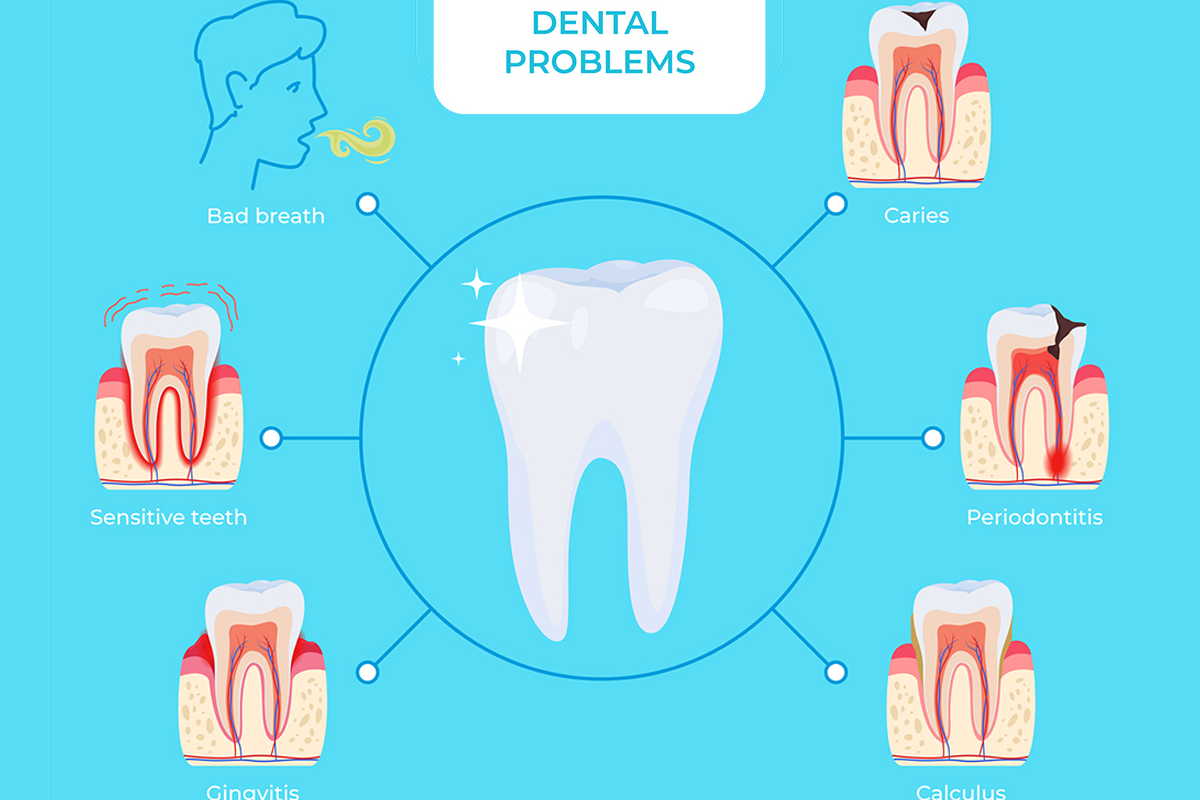
Research has proven the power of the mind-body connection — how a person’s thoughts, attitudes, and behaviors are linked to their physical health. But did you know that there’s also a significant correlation between the mouth and the body?
Oral health and the health of your physical body are interrelated — and we pay significant attention to the mouth-body connection at SMILE! Advanced Dental Care in Summerville, SC.
Because tooth decay and periodontitis (a severe gum infection) can be linked with other systemic health problems, including cardiovascular disease, stroke, and bacterial pneumonia, the importance of taking care of your smile and catching any issues early cannot be understated.
While regularly scheduled six-month dental cleanings and exams are vital, we encourage our patients to also pay attention to what their mouths might be telling them in between appointments. Early detection could mean avoiding serious health conditions while ensuring easier, faster, and less expensive treatment.
That said, here are six common potential warning signs that we recommend you take seriously.
1. Pain
Pain is generally your body’s way of letting you know that something isn’t quite right. If you have tooth, jaw, or gum pain, you should get it checked out — plain and simple! Toothaches shouldn’t be ignored because they can indicate a cavity, abscess, broken tooth, or damaged filling to name a few. Jaw pain could indicate TMD, a disorder that affects the jaw joint and gum pain could be gum disease or gum recession.
2. Tooth sensitivity
Sometimes teeth can be sensitive. While this isn’t always a sign of a problem that needs attention, if the sensitivity is ongoing and occurs alongside sharp bursts of pain, it’s going to be best to visit your dentist. That’s because tooth sensitivity can also be a sign of gum recession, cavities, or a broken or a cracked tooth.
3. Bleeding gums
There are a number of factors that can cause gums to bleed. Some are minor and can be remedied with simple changes to your daily brushing and flossing practices. And some can be more serious — like gum disease, which is also called periodontal disease. That’s why it’s important to get it checked, especially if it’s an ongoing issue.

4. Persistent bad breath
While you might brush off bad breath, it might be something more than those onions you ate on your burger. When bad breath has become chronic, it could be a sign something else is amiss — such as a buildup of bacteria in your mouth, dental decay, dry mouth, or gum disease. It can also indicate problems in other areas of the body like GERD, kidney disease, and diabetic problems like ketoacidosis.
5. Loose or shifting teeth
While we all likely remember losing our baby teeth as kids, adult teeth should not be eligible for a visit from the Tooth Fairy! If you notice a loose tooth or slight movement and widening gaps, don’t discount it, as it could indicate infection or bone loss.
6. Sores
Common canker sores aside, other oral sores or lesions should be looked at by a dentist. A fungal infection called thrush can show up as white sores on the tongue, inner cheek, tonsils, or roof of your mouth while other types of sores can also mean decay or infection.
If you’re experiencing one or more of these six symptoms, contact our general dentistry practice for an appointment. Just know that sometimes there are no warning signs of early gum disease, so that’s why it’s important to prioritize that regular dental check-up and cleaning, too.
In the meantime, if you’re looking for more best practices to keep your entire mouth healthy, check out our tips here.

0 Comments